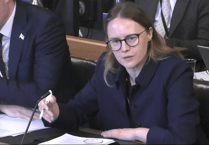Introduced 12 years ago by former prime minister David Cameron, the current model has 41 commissioners who oversee police budgets, appoint chief constables and set local policing priorities.
The Home Office said fewer than 20 per cent of voters could name their PCC.
Commissioner Alison Hernandez assumed office on May 12, 2016 and is now serving her fourth term representing Devon, Cornwall and the Isles of Scilly.
In a statement released on Thursday afternoon, Ms Hernandez said: “I am shocked by today’s announcement and we are still working out what this means for the people of Devon and Cornwall and the Isles of Scilly, and for the staff in my office.
“I want to assure all members of the public that my office and I are still going to be here for the next two and a half years and we will continue to hold the police to account on your behalf.
“My team and I have a lot to be proud of. We have a record number of police officers – 3,610 - and are one of the areas with the most reopened police stations. We also believe Devon and Cornwall Police is the most financially stable force in England thanks to the good financial planning of my office.
“I am doubtful the change announced today will save the estimated £100 million that has been stated by the Home Office minister. The duties of my office must remain independent of policing and will continue to incur a cost to the public regardless of where the responsibility for delivering them rests. This includes providing services for victims, being the appeals body for complaints against the police and having responsibility for elements of the misconduct process for all police officers.
“I have spoken to the Chief Constable, James Vaughan, and I am confident our positive working relationship will continue for the rest of his contract which runs until January 2027. The recruitment of the next Chief Constable will continue to be overseen by my office as planned.”
Under the reforms, the powers of commissioners will transfer to elected mayors or council leaders once their current terms end in 2028.
The government said the savings will allow an extra £20-million a year to be spent on front-line policing, the equivalent of 320 constables.
Policing minister Sarah Jones told MPs that the system had “failed to live up to expectations”, weakening local accountability and creating “perverse impacts” on the recruitment of chief constables.
The Home Office said that under the reforms, efforts to reduce crime would be integrated with broader public services, such as education and healthcare.
It added that support for victims and witnesses, currently managed by PCCs, would continue under the new structure.
Home Secretary Shabana Mahmood said the reforms would strengthen local accountability by making police answerable to mayors or council leaders.
Responding in Commons, shadow home secretary Chris Philp dismissed the plans as “tinkering around the edges from a government that is failing on crime and policing”.
He highlighted rising offences such as shoplifting and warned that police forces are already struggling with front-line staffing pressures caused by funding shortfalls.





Comments
This article has no comments yet. Be the first to leave a comment.